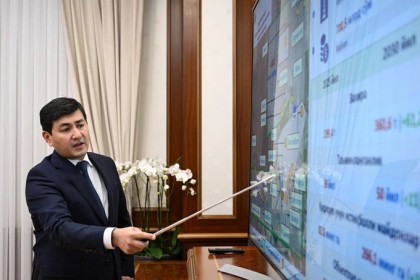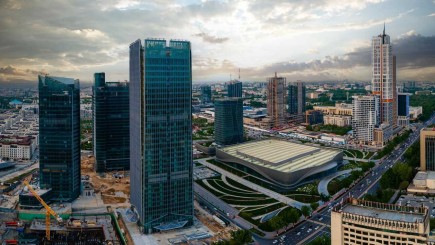Lukoil said on Thursday it had accepted an offer from global commodity trader Gunvor to buy its foreign assets, which Russia's second-largest oil company is seeking to sell after Washington imposed sanctions on it last week.
The planned asset sale is the most consequential action so far by a Russian company resulting from Western sanctions imposed over the war in Ukraine, which began with Russia's 2022 full-scale invasion of its neighbour.
Lukoil said in a statement it had accepted an offer from Gunvor to sell Lukoil International GmbH, which controls the oil major's foreign assets.
"The key terms of the transaction have been earlier agreed by the parties. On its side, (Lukoil) accepted the offer, having undertaken not to negotiate with other potential buyers," Lukoil said of Gunvor's offer.
Gunvor confirmed it was in talks with Lukoil over the possible acquisition of its foreign assets.
The U.S. Treasury Department has issued a licence giving companies until November 21 to wind down any transactions with Lukoil and Rosneft, another Russian energy firm targeted by the new round of sanctions.
"If necessary, the parties plan to apply for an extension of the current licence," Lukoil said.
The deal is subject to permission from the Treasury's Office of Foreign Assets Control, it added.
Gunvor rose to prominence in the 2000s as the world's biggest trader in Russian oil.
Its shareholders at the time included Gennady Timchenko, a close ally of President Vladimir Putin, who sold his stake in Gunvor after the U.S. targeted him with sanctions following Russia's 2014 annexation of Crimea.
Like many trading houses, Gunvor has profited heavily from a rally in oil and gas prices that began with the outbreak of the war in Ukraine and Europe's move to cut its dependence upon Russian energy.
Gunvor and peers Vitol and Trafigura have used those profits to acquire assets ranging from refineries and oil fields to power plants and wind farms.
LUKOIL'S FOREIGN ASSETS - FROM IRAQ TO AFRICA
Moscow-headquartered Lukoil accounts for around 2% of global oil output.
Its biggest foreign asset is Iraq's West Qurna 2 oil field, one of the world's largest, in which it holds a 75% stake. The field's output topped 480,000 barrels per day in April, Russia's Interfax news agency reported.
It also owns the 190,000 bpd Lukoil Neftohim Burgas refinery in Bulgaria, the largest in the Balkans, as well as the Petrotel oil refinery in Romania.
Lukoil supplies oil to Hungary and Slovakia, as well as to Turkey's STAR refinery, which is owned by Azerbaijan's state oil company SOCAR and depends heavily on Russian crude.
Lukoil also holds stakes in oil terminals as well as retail fuel chains in Europe and owns upstream and downstream projects in Central Asia, Africa and Latin America.
Lukoil's projects in Uzbekistan
Lukoil is one of the largest foreign investors in Uzbekistan's oil and gas sector. The company's total investments as of 2024 surpassed $10 billion.
In 2004, the Uzbek government signed a production sharing agreement (PSA) with the Russian company for the Kandym-Khauzak-Shady projects (for a period of 35 years, extended in 2014 for another 7 years – until 2046) in the Bukhara region and the South-West Gissar project in Kashkadarya (entered into force in 2007 and is valid for 36 years, until 2043).
Lukoil's largest project in Uzbekistan is the Kandym gas processing complex with annual 8.1 BCM gas throughput capacity and total investments of $3.5 billion. The Kandym complex has become one of the largest gas processing enterprises with new technologies in Central Asia.
Lukoil is the second largest gas producer in Uzbekistan after Uzbekneftegaz. As of June 1, 2024, the company's total gas production volume had already reached 134.4 BCM. In 2023, it operated in 13 gas fields in the country. Uzbekneftegaz acts as the state partner in the projects.
Meanwhile, as of January 1, 2021, the largest confirmed reserves were under the control of Uzbekneftegaz – 934.1 BCM of gas (50% of current reserves). Lukoil operated fields with gas reserves of 413.1 BCM (22.1%), Uz-Kor Gas Chemical – 109.6 BCM (5.9%), Surhan Gas Chemical – 106.6 billion (5.8%), and Jizzakh Petroleum (now Saneg) – 84.9 BCM (4.5%).
The Russian company also launched a network of gas stations in Uzbekistan. The company's first gas station in Tashkent was opened in 2018. In April 2024, two more stations opened in the suburbs of Tashkent.













